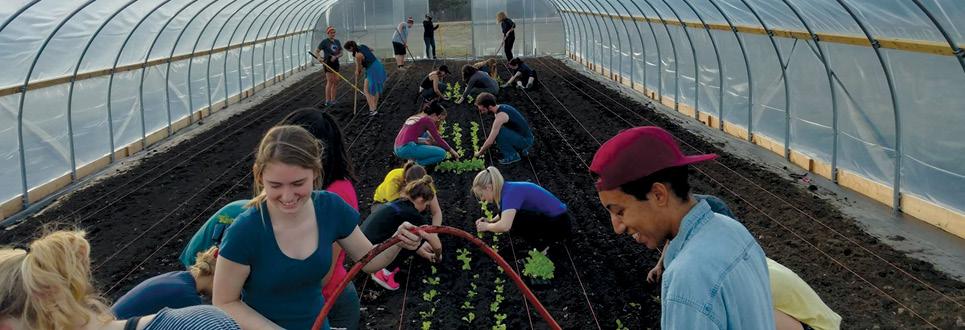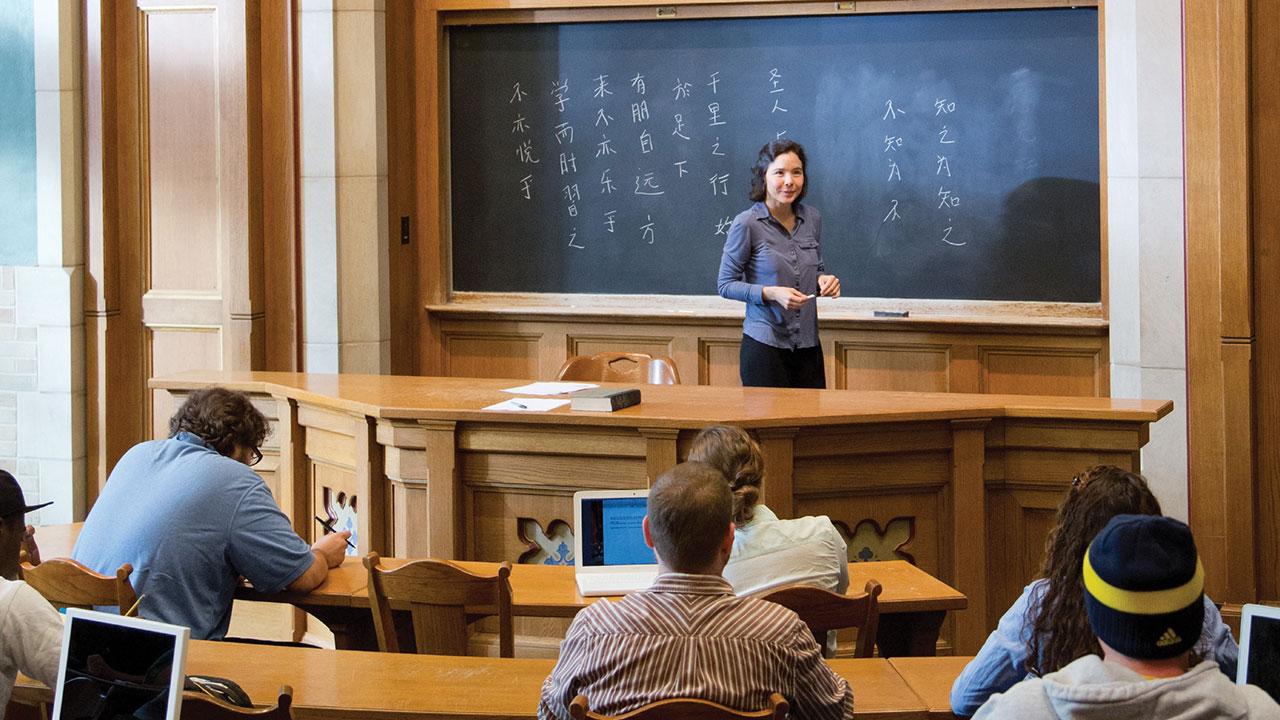Blog
Get the inside scoop about life at U-M and applying to Michigan from current student bloggers, Admissions staff, and guest faculty writers.

Get the inside scoop about life at U-M and applying to Michigan from current student bloggers, Admissions staff, and guest faculty writers.

Learning a language is hard no matter where you are. But at U-M, you can tap into so many resources and people to help you gain proficiency in the language of your choice.

College is the perfect place to start (or continue) learning a language. There are many resources to help you improve your speaking and writing skills on campus, and you’ll be surrounded by so many other people who are also learning another language too! Here are some tips to get you started for people at every level of the process:
I’m going to be honest: If you’re starting a language for the first time and plan to get a minor/major, it helps if you already have some background so you can test out of the 100 level classes. However, if you’re just getting started that’s okay too!
Starting off with 100 level or 200 level classs sometime within the first two years will keep you on track to finish a minor/major. If you just want to get some exposure to a language, I know plenty of friends who just took an introductory sequence for the language requirement their junior and senior year and that was plenty for them.
Depending on your current background, taking an intensive language course (either intensive I or II) is an amazing way to build a foundation for the language of your choice. There are intensive language courses for Japanese, French, German, Russian, and Spanish. They are usually eight credits and meet twice a day for an hour, four times per week (so yes, it’s intense.) Anyone can register for the classes, even if you’re not in the RC. I took an Intensive II Spanish course for Pass/Fail and it filled a lot of gaps in my Spanish knowledge and gave me a strong background for the 300-level classes I’m taking now.
Even if you don’t have time to enroll in a class this semester but want to keep up with your language, the RC intensive language courses also offer lunch tables and coffee hours for all of the students registered in an intensive course. They’re open to all students as well. (And the coffee hours actually have tea and coffee!)
You can find a club for most languages on MaizePages, and they all offer similar opportunities to learn more about the language and make connections with other people learning a language through social events and conversation hours!
You know what they say – one of the best ways to learn is to help teach other people. If you feel like you have a strong background in the language, offer to tutor people in lower-level courses. You can even apply to be a tutor for students taking a intensive I or II course through the RC and earn one to two credits.
So you’re taking one or two language courses, but you feel like you still don’t actually speak another language often enough to learn it?
Find a language buddy (maybe through one of the language clubs or classes) and commit to practicing your language outside of class. Maybe you can agree to only speak another language with one another or meet once a month to practice speaking. It's hard to find extra time to practice speaking on top of regular classes, so finding a language buddy can help hold you accountable to learning the language.
Minoring/majoring in a language is not for everyone, but the higher up you go in language courses, the more the typical people in your classes will actually be into learning a language instead of just trying to fulfill their LSA requirement (although that’s cool too if that's you). I’m taking one upper-level Spanish class this semester and I was surprised at how many people actually volunteer to speak up in class. But this is pretty much true for when you get into any upper-level course for any major – people (for the most part) are actually interested in what they’re learning, so it’ll be less weird to contribute in class, which means you’ll probably learn more and improve your language skills!

Maryam Masood (she/her) is a senior in the College of Literature, Science, and the Arts majoring in Organizational Studies. During the year, she keeps busy managing the Michigan Refugee Assistance Program and working as a trainer at Rec Sports. Outside of class and work, she can most likely be found making another cup of coffee, procrastinating at the CCRB, or rewatching Kim's Convenience on Netflix.